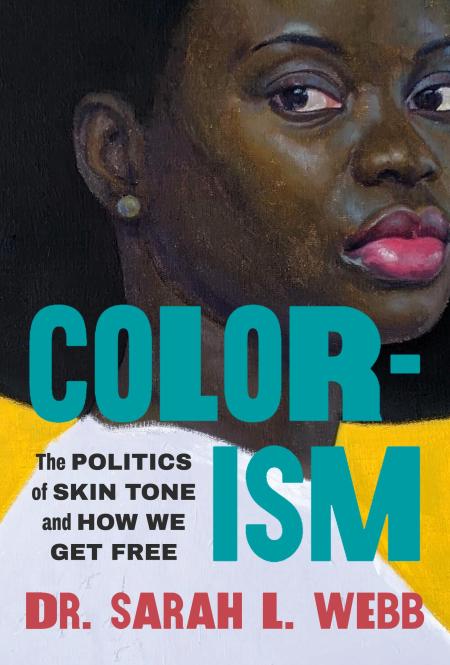Shopping Cart
Colorism
The Politics of Skin Tone and How We Get Free
Description
In a world that feels more divided than ever, there has never been a greater need for a more nuanced conversation about bias. And while racism is widely recognized as a social ill, there is another, more invisible hierarchy informed by our most visible feature, skin tone–and it impacts all of our lives. Dr. Sarah Webb’s Colorism arrives to decode the under-discussed topic and offers an actionable program for both personal growth and to course correct for collective healing.
Colorism is the systemic oppression and social marginalization of people with darker skin tones and the privileging and empowerment of people with lighter skin tones. Colorism rivals similar societal problems like racism and sexism in that it leads to differences in everything from pay and wealth, healthcare outcomes, and political representation to family, social life, and romantic partnership. So why don’t we know how to talk about it or what to do about it? Often shrouded by the desire to “keep it in the family” and deemed taboo among Black and communities of color, in which people of the same race can vary in skin tone, colorism often skates by as sibling disagreements, personal preferences, and other interpersonal conflict, rather than a systemic issue. And it’s not just something that people of color face alone. White people, institutions, and even media and entertainment outlets can exhibit colorist behaviors and attitudes too.
Dr. Webb explains what colorism is, breaks down where and how it shows up in our lives, and address how it disenfranchises us all. Complete with a framework for addressing the harm that colorism causes, Colorism is an essential tool to help us move toward a more equitable, compassionate world.
Colorism is the systemic oppression and social marginalization of people with darker skin tones and the privileging and empowerment of people with lighter skin tones. Colorism rivals similar societal problems like racism and sexism in that it leads to differences in everything from pay and wealth, healthcare outcomes, and political representation to family, social life, and romantic partnership. So why don’t we know how to talk about it or what to do about it? Often shrouded by the desire to “keep it in the family” and deemed taboo among Black and communities of color, in which people of the same race can vary in skin tone, colorism often skates by as sibling disagreements, personal preferences, and other interpersonal conflict, rather than a systemic issue. And it’s not just something that people of color face alone. White people, institutions, and even media and entertainment outlets can exhibit colorist behaviors and attitudes too.
Dr. Webb explains what colorism is, breaks down where and how it shows up in our lives, and address how it disenfranchises us all. Complete with a framework for addressing the harm that colorism causes, Colorism is an essential tool to help us move toward a more equitable, compassionate world.
Newsletter Signup
By clicking ‘Sign Up,’ I acknowledge that I have read and agree to Hachette Book Group’s Privacy Policy and Terms of Use
